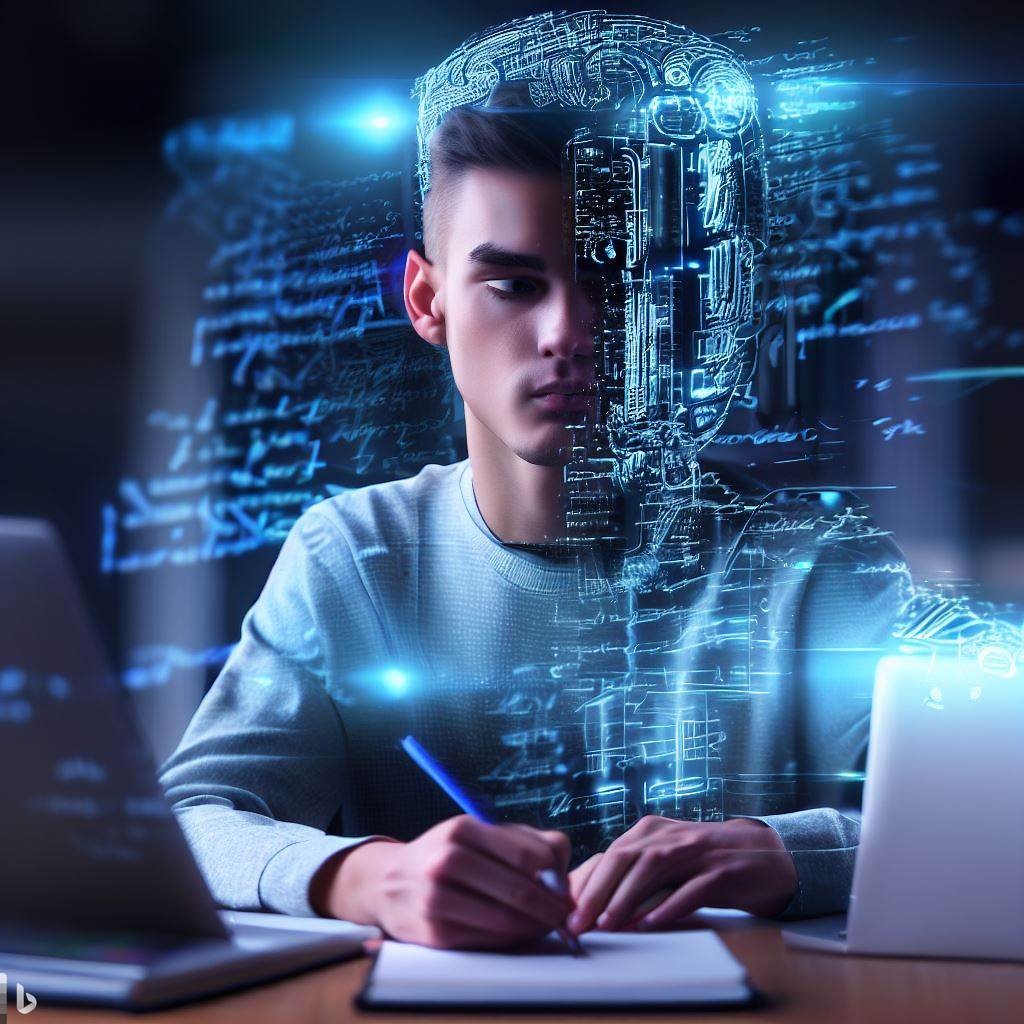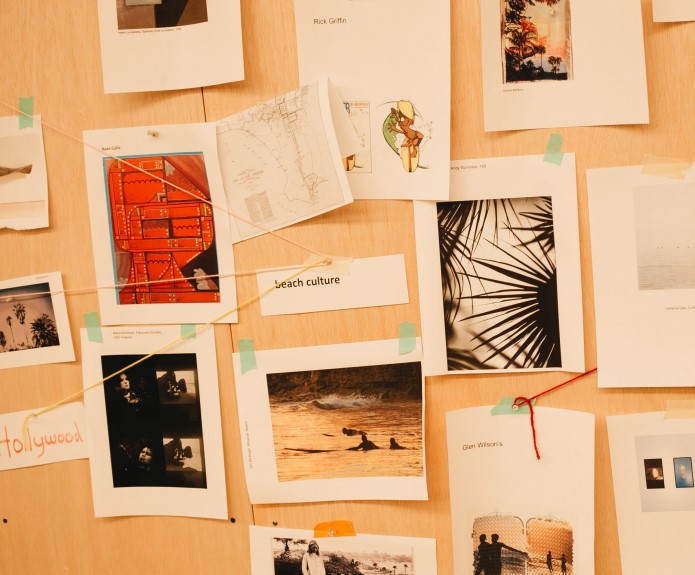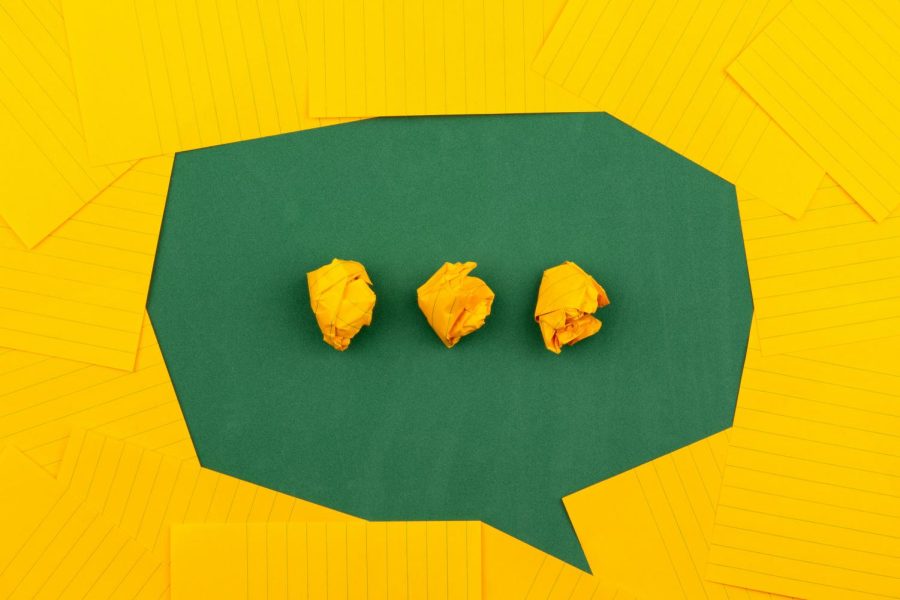I was working late one night on a last-minute story about how gang violence affects LA traffic accidents in the 77th district for a data journalism piece, interviewing an EMT via Direct Message on Instagram. Once I persuaded him to respond to my questions, I was promptly met with four paragraphs of logical and well-written responses. As I was inserting his quotes into an article, he followed the responses by letting me know that he had plugged my questions into ChatGPT and put the answers in the chat. He was confused as to why I would not use his responses in my piece.
ChatGPT plagiarism is a growing concern among college professors, who understand the value of students doing their own work in order to develop their learning abilities. According to VICE, NYU professors have begun to include a clause in their syllabi prohibiting the use of ChatGPT for coursework. The technology to catch this kind of plagiarism exists, but it is not well-developed yet.
GENERATIVE AI
Rapidly developing generative AI, a type of artificial intelligence that can “generate” original content upon human prompts, is generating a kind of buzz that is divisive –– either people condemn it as a way to diminish valuable job resources or see it as a helpful tool in increasing corporate efficiency. But no one is talking about how this generation, specifically those in college, are impacted. At worst, it erases our need to critically think about class participation and the jobs and internships we will rely on upon graduation. At best, it is an important part of the developing technology world, a world which can feel like a race to keep up with.
Just a week ago, tech giant Elon Musk called for a slow-down in the pace of development of Artificial Intelligence. His reasoning, even if a veiled corporate PR move, is sound. More than ever, Artificial Intelligence is a growing part of the business industry, communications and research –– showing up in the places consumers least expect. What is making the biggest difference in the current workplace, however, is generative AI. ChatGPT is a prime example of this, but other forms exist that can generate images, as well.
And while Artificial Intelligence grows globally, so do job opportunities in software development. The U.S. Labor Bureau projects a 20 percent growth in the next few years.
This is good news for college graduates who are looking to get into the tech industry. The notion that Artificial Intelligence may be stealing job opportunities from college graduates is a hollow fear –– for now. The truth is that Artificial Intelligence cannot replace human work, though it may be able to do more of the menial tasks that take up valuable time.
The mission statement of OpenAI, the company behind Chat GPT, is to “to ensure that artificial general intelligence—AI systems that are generally smarter than humans—benefits all of humanity.”
In response to OpenAI’s mission statement, biology Professor Douglass Axe commented on the ideal of AI replacing problem solving and information processing at work. While he sees it as a powerful tool, the overall goal of taking away work, which is an essential part of the human experience, is not as ideal as it may seem.
“The disturbing thing here is that what they’re after is for us to be unemployed and independently wealthy. And so, if they think that it is [best] for all humans to not have to do anything, and have the means to do whatever they want to do, that seems profoundly dystopian to me, because it’s a deep misunderstanding of the role of work,” said Axe.
Pointing to a higher principle of human satisfaction, Axe went on to say that work is an essential part of creation, and therefore, an essential part of human happiness. Thomas Wilson, human resources expert and business ethics professor, added to this dilemma. There is a clear sense that even amidst the job growth and opportunity that this field offers, there are ethical and emotional pitfalls, especially when Artificial Intelligence is used to replace jobs that require uniquely human characteristics.
According to Wilson, as soon as Artificial Intelligence crosses into the field where critical thinking, empathy and compassion are required for job performance, then there will be problems in the workplace.
“What concerns me is when you cross over into a field that to me, at least, and HR is a perfect example, demands human input,” Wilson said.
AI IN THE WORKPLACE
The integration of Artificial Intelligence into the workplace is happening at a rapid pace. According to a survey done by MITSloan management, over 87 percent of global organizations believe that AI utilization will give them a competitive edge in the marketplace. That survey was conducted three years ago. Since then, the industry has grown astronomically to $136 billion in revenue as of last year.
OpenAI specifically names ethics as a key part of their development process, whose ChatGPT system is built with many fail-safes in terms of responses. But the problem with AI is not the product design itself, though it may come with some errors, but the nature of the product. Wilson was worried specifically about how it would impact the future workforce, knowing that students have access to technology that impedes the necessity of the critical thinking process, especially when it comes to ethical decision making.
In his Organizational Ethics class, he requires students to think through ethical decision-making processes using tenets. They present both sides of a case for a particular problem. This develops a sense of personal responsibility and ethics in their critical thinking process, something that is not possible if students copy and paste questions from the textbook into ChatGPT.
Ethan Arredondo, a design student at Biola, and a student of Axe’s Design of Life class, commented on Artificial Intelligence’s impact on his future job search. Arredondo is the visual director for The Point and works in production for Sean McDowell.
“As a tool I think AI is very helpful, especially in the experience that I have doing media work,” Arredondo said. “But it’s never gonna be able to do more than things like make assets or backgrounds … I’m not worried about [Artificial] Intelligence replacing my job.”
Arredondo points out what makes the EMT’s responses so alarming. The erasure of humanity from our corporate communications pulls us even closer to that “Dystopia” Axe spoke about––there is a sense in which automating communicative or art work takes the point out of writing or designing in the first place.
‘CHAT GPT, WHAT MAKES YOU DIFFERENT FROM ME?’
Putting a prompt into an AI machine will get the user a mechanical kind of response, one that, at the very least, adds nothing to a historical conversation that needs to be rich with meaning and depth. The sanctity of personal testimony and thought holds weight, because it is essentially human.
Communicative depth takes time. It requires experience and consciousness. As a journalist, I am acutely aware of how my human biases, experiences, emotions and ability to communicate with others impact my story-telling abilities and my future impact on the industry I am passionate about.
I asked ChatGPT what makes it different from me, to which it replied:
“ 1) I am a machine: I am a computer program running on servers, while you are a living organism.
2) I have access to vast amounts of information: I can access and process a vast amount of information much faster than a human being.
3) I don’t have emotions: I am not capable of experiencing emotions like happiness.
4) I don’t have a body, so I don’t have physical sensations like pain, pleasure or taste.
5) I don’t have free will … while humans have the ability to make choices based on their own thoughts and emotions.
However, there are some ways in which we are similar. For example, we both have the ability to communicate and share information, and we both have the capacity to learn and grow over time.”
In some ways, ChatGPT makes the perfect student –– if all we require from it is a well-written essay.
This article first appeared in print on May 1, 2023 in the Chimes Magazine Vol. 2, Issue 4 edition.
















